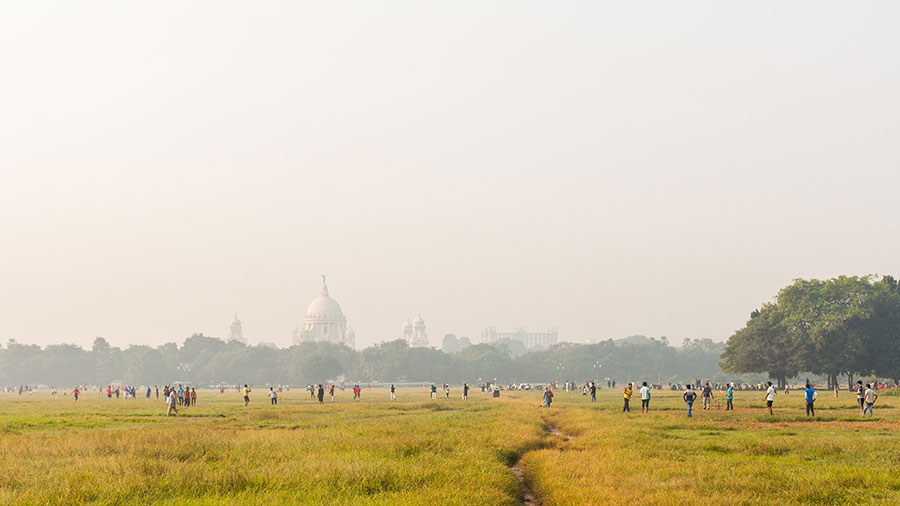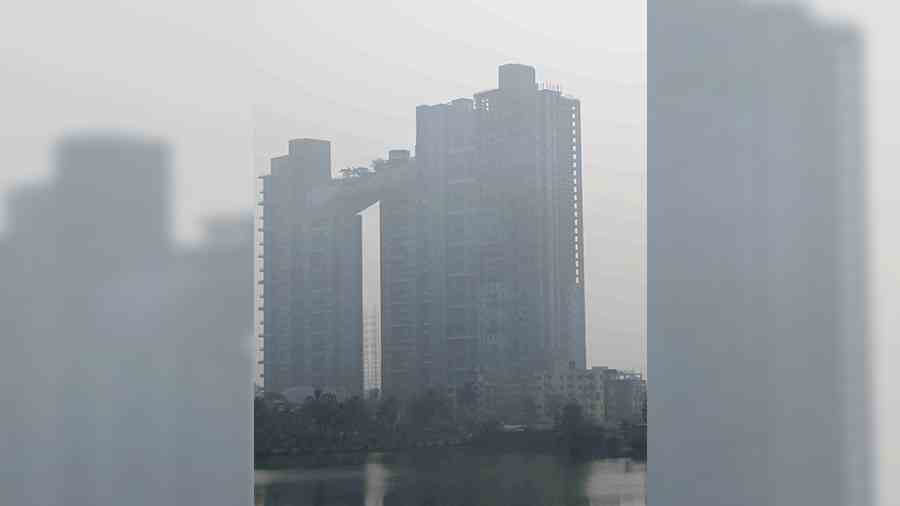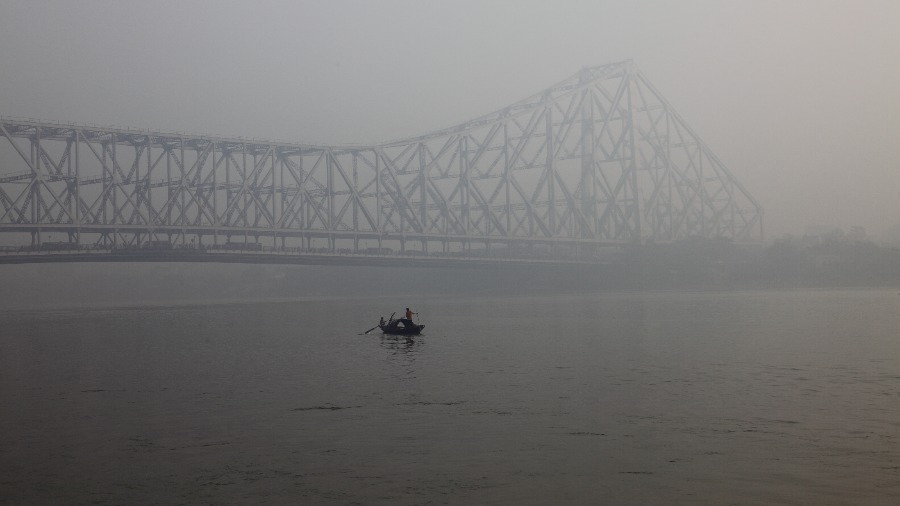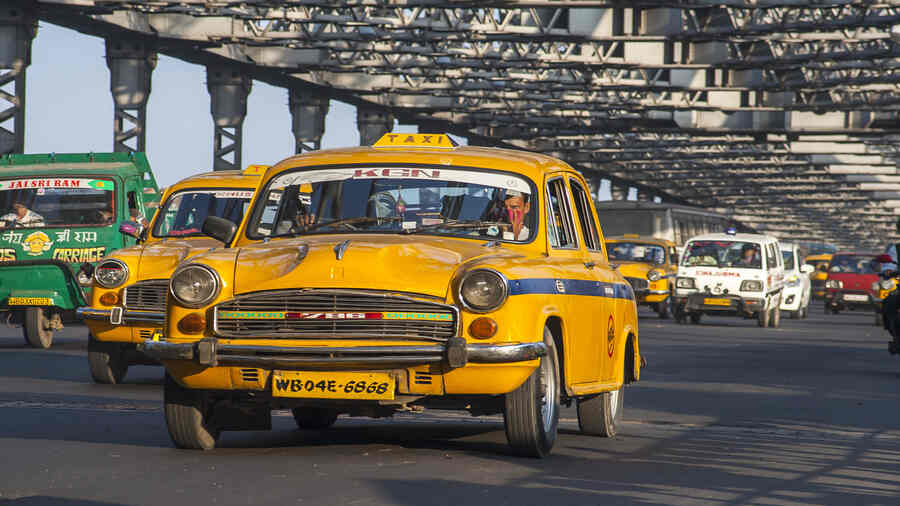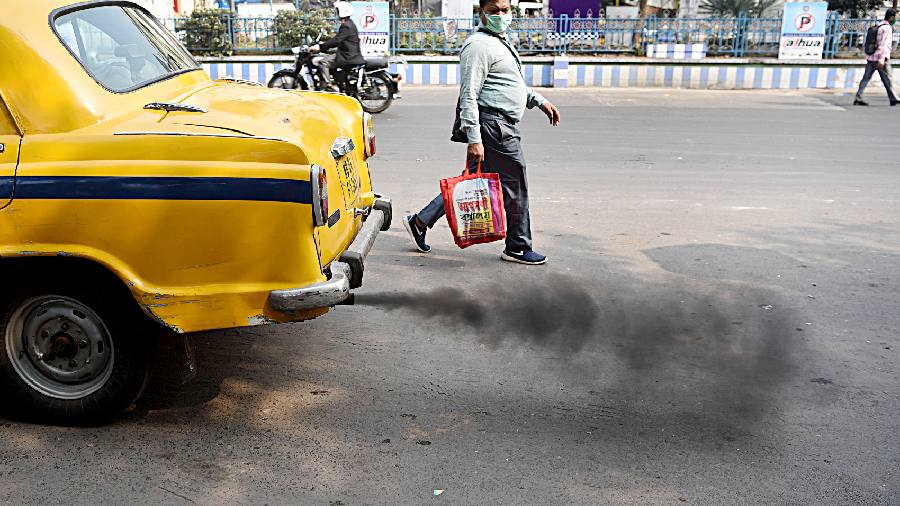Experts have raised questions over the West Bengal Pollution Control Board (WBPCB)’s decision to plant trees to create a bio-shield along the western fringe to stop air pollutants from entering the state. The project may cost several crores of rupees and it will take several years to yield desired results.
The West Bengal Biodiversity Board has been entrusted to execute the project.
West Bengal also claims that pollution from neighbouring states is responsible for close to half of the state’s pollution load.
West Bengal’s environment minister, Manas Bhunia, recently said that air pollution in southern districts of the state was increasing due to transboundary pollution from the neighbouring Jharkhand and Bihar. Addressing a press conference, he had said the state was planning to plant "tall trees" along the border to prevent the incoming pollution.
Even as the detailed project report is yet to be finalised, the project may cover around 800 km across districts like Purulia, Birbhum, Paschim Bardhaman and Jhargram.
“WBPCB has come up with a unique plan of putting up a bio-shield, a massive plantation, along the borders of our state to prevent the incoming air pollutants. We have already cleared the proposal that may take a few years to give dividends as the trees will take some time to attain maturity,” Bhunia told The Plurals.
“We expect to curb the inflow of transboundary air pollution in Bengal, which is about 50 per cent of our overall load from the adjoining states through the bio-shield,” said PCB chairman Kalyan Rudra.
Experts sceptic
Experts are, however, sceptical about the proposal. Transboundary movement of pollution can be curbed only with a regional clean action strategy to cut emissions from a large number of pollution sources spread across the region. Green walling with plantations can only filter dust to some extent and that too if it is hugely extensive,” said Anumita Roy Chowdhury, executive director, research and advocacy, Centre for Science and Environment (CSE), New Delhi.
"The transboundary pollution travels around 500 meter or more above the land and hence any bio-shield at the border will be ineffective to stop the inflow of transboundary air pollution. Rather than having a bio-shield, perhaps West Bengal requires a treaty and coordinated programme with adjoining states and places like Bangladesh to minimise the impact," said professor S.N. Triphathi, an air pollution expert from IIT Kanpur.
Asked whether there is any instance in the country or even globally where there has been an attempt to curb transboundary pollution through green walling, professor Tripathi said, “At least, I am not aware."
“I do not know the details of this proposal but our research findings show that transboundary air pollutants, especially most toxic PM2.5, normally moves at least 500 metre above the surface especially during winter and hence is unlikely to be arrested by bio-shield,” said Abhijit Chatterjee, an air pollution scientist associated with the Bose Institute.
Gufran Beig, an air pollution expert and director of System of Air Quality Forecasting and Research (SAFAR) network set up by the government of India, said the green wall is not likely to have any effective role in countering the flow of transboundary pollution.
“Transboundary pollution flows in between 500 metres and 2 km beyond the boundary of inversion layer with local pollutants based on the season and climatic condition; and hence bio-shield or green wall has no direct relation in countering any pollution flowing within Bengal from beyond its border,” Beig told The Plurals.
However, both Beig and Chatterjee accepted that massive plantations may play a limited role in arresting the pollutants while part of which get landed once mixed with local pollutants; or to address locally generated pollutants.
Costly project
According to organisations with expertise in mega tree plantation, such an exercise will cost several crores of rupees. “Even if we consider trees to be planted at a distance of two metres from each other, we are looking at planting 400,000 trees for an area of 800 km in one row and the total cost of the project was likely to be Rs 12 crore considering the mortality and maintenance of planted trees over the period. If multiple rows of plants are erected; the cost will increase manifold,” said wildlife expert Biswajit Roy Choudhury, who heads a non-profit that has planted millions of trees in West Bengal and elsewhere in India.
“We are not against tree plantation. But we would like to know based on what scientific evidence, the WBPCB has taken such a costly decision. If it is so useful, why are regions like Delhi and the National Capital Region, which are so much affected by transboundary pollution, not doing the same? We feel that it will lead to nothing but a waste of money,” said an environmentalist associated with the environment platform Sabuj Mancha.
“We do not have any evidence (that such an initiative will succeed); you may say we are building up the evidence,” said a senior WBPCB official.
